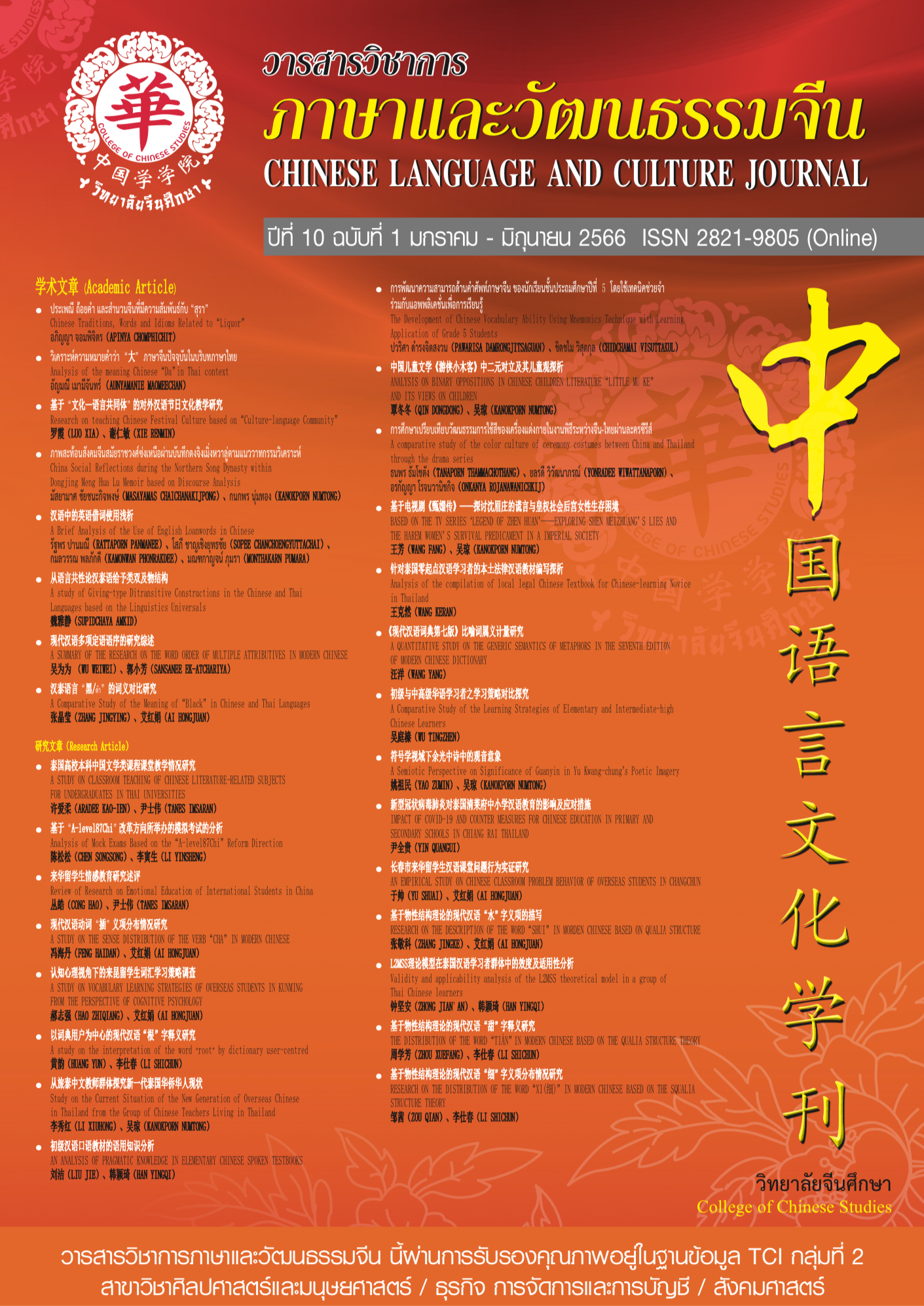A study on the interpretation of the word "root" by dictionary user-centred
Keywords:
Dictionary user, interpretation research, meaning division, meaning description, rootAbstract
From the perspective of dictionary users, this article mainly takes Chinese word "root" as an example to study its meaning distribution and interpretation in Chinese-English dictionary; Exploring the combination of dictionary interpretation and corpus technology, the distribution of the meaning of the word“root”has been re-divided, and the interpretation has been improved by combining with the descriptive discourse,which is expected to provide a reference for the compilation and interpretation of the dictionary in the future.
References
蔡永强. (2011). 对外汉语学习词典编纂的用户友好原则.辞书研究(02):67-77
程燕.(2019).外向型成语词典与内向型成语词典释义比较.广东技术师范学院学报(02):68-76
焦子桓,艾红娟.(2020).汉英内外型词典义项精细度对比研究.九江学院学报(社会科学版)(04):105-108
李强.(2014).汉语形名组合的语义分析与识解——基于物性结构的探讨.汉语学习(5):9
李强.(2015).从生成词库论看动词“写”与名词的组合.云南师范大学学报(对外汉语教学与研究版),(02):69-80.
李强,袁毓林.(2016).从生成词库论看名词的词典释义.辞书研究, 000(004):12-26
谭宏姣,雷会营.(2020).《现代汉语词典》植物词的收词及释义研究.吉林师范大学学报(人文社会科学版)(03),41-49
解海江,李莉.(2012).外向型汉语学习词典需求状况调查研究.鲁东大学学报(哲学社会科学版)(01):62-68
杨金华. (2016).论外向型汉语学习词典编纂的四项基本原则.辞书研究, 000(001):45-51
于屏方,杜家利. (2016). 近三十年来国外词典对比研究的现状与特点——以《国际词典学》为例. 辞书研究, 000(001): 65-72
袁毓林. (2014). 汉语名词物性结构的描写体系和运用案例.当代语言学, 016(001): 31-48
章宜华. (2010).内向型普通词典与外向型学习词典的对比研究——对外汉语词典及其蓝本词典的问题探讨.广东外语外贸大学学报, 021(005):5-9
章宜华. (2011).对外汉语学习词典释义问题探讨——国内外二语学习词典的对比研究. 世界汉语教学, 025(001):120-128
章宜华.(2001).西方词典释义类型和释义结构研究.辞书研究(01):39-50[14]
Pustejovsky,James.(1991). The Generative Lexicon. Computational Linguistics, 17(4): 409-441
Downloads
Published
How to Cite
Issue
Section
License
Copyright (c) 2023 Chinese Language and Culture Journal

This work is licensed under a Creative Commons Attribution-NonCommercial-NoDerivatives 4.0 International License.
บทความที่ได้รับการตีพิมพ์เป็นลิขสิทธิ์ของวารสารภาษาและวัฒนธรรมจีน มหาวิทยาลัยหัวเฉียวเฉลิมพระเกียรติ
บทความใน “วารสารวิชาการภาษาและวัฒนธรรมจีน” เป็นทรรศนะของผู้เขียนโดยเฉพาะ กองบรรณาธิการไม่มีส่วนในความคิดเห็นในข้อเขียนเหล่านั้น




